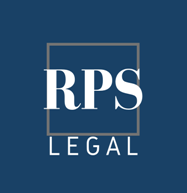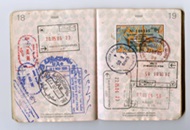Foreign citizens who originate from the European Union (EU), European Economic Area (EEA) and Switzerland do not require a visa to enter the Netherlands. However, citizens of most countries outside these areas generally, with a few exceptions, must obtain a visa in order to stay for maximum 90 days in the country.
The Schengen visa for the Netherlands
A Schengen visa enables a foreign citizen to be able to travel and stay in the Schengen area for maximum three months within a six-month time frame. Foreign citizens who have the Schengen visa are also able to travel in the other countries of the Schengen area. Our immigration experts in the Netherlands can provide more details on the countries which are part of the Schengen area.
Application process for the Netherlands visa – a process explained by our immigration lawyer in Netherlands
Foreign citizens who need a visa in order to enter the Netherlands can apply for a visa at the Dutch embassy or consulate in their countries of origin. They are also able to apply for a visa at the embassy or consulate of another Schengen country that represents the Netherlands in their countries of origin. Foreign citizens can request the help of our team of Dutch immigration experts, who can provide them with reliable and affordable immigration services.
A Schengen visa is valid for a stay of maximum 90 days in any 180-day time frame, which is called a short stay visa. A longer stay in the Netherlands is possible if the foreign citizen acquires an authorization for a temporary stay from the Immigration and Naturalization Service (IND). In some cases, individuals who apply for the Schengen visa can extend its term but only in special or exceptional cases when the applicant becomes informed of the reasons for the change after his/her arrival in the Netherlands. Our immigration lawyer in Netherlands can provide detailed information on how to acquire the temporary stay authorization in the Netherlands.
Visa applicants should keep in mind that obtaining a visa does not equal gaining the right to remain in the country for residency purposes. This is permitted not for tourists or those who have a visa for medical purposes, but for those who apply to remain in the country for long-term purposes such as study, employment, or business. Our team can give you details about residency in the Netherlands.
We have prepared a comprehensive video about how to apply for a visa for the Netherlands:
Types of visas in the Netherlands
A distinction is made between short-term visas, in some cases the Schengen visa that can cover the needs of the applicant and long-term visas. In this article, our Netherlands immigration lawyers cover the types of short-term visas, suitable for periods in which the applicant needs to stay in the country only for visiting purposes or for quick business arrangements, conferences, and others.
The list below includes the four main types of visas that are considered short-term:
- the tourist visa: only for the purpose of planning a holiday in the Netherlands and can only be used for leisure or recreational activities, no business purposes.
- the transit visa: can be used for transit within the airport areas in the Schengen Area but not for entering the country; it is mandatory based on nationality.
- the family visiting visa: different from the tourist visa, this type is used for visiting family, relatives, friends in a Dutch city.
- the business visa: for short-term business purposes such as conferences, meetings, trainings, panels, trade fairs or other activities that are not remunerated by a Dutch company.
If you wish to apply for a different type of visa, such as the investor visa in the Netherlands, we can also assist you.
It is important to note that the scope of these types of short-term visas is limited and when the applicant needs to conduct activities that fall out of their scope, he or she will be required to obtain additional permits, such as a work permit when applicable. This is why it is important to be clear on the purpose of the visit before submitting the application. The documents are submitted to the visa application centers within the Dutch embassies or consulates in the applicant’s country of origin. Below, our team lists the general documents needed to make a visa application.
Documents needed to apply for the Dutch visa
The documents necessary to apply for the Dutch visa are:
• an application form;
• two photos;
• a valid passport and copies of the previous visas;
• a copy of the return ticket;
• a travel visa insurance confirmation of at least EU 30,000 coverage inside the Netherlands and the whole Schengen area;
• a cover letter declaring the purpose of the visit into the country, as well as the itinerary;
• proof of accommodation during the intended stay in the country;
• proof of financial means during the stay in the Netherlands;
• other documents. Our Netherlands immigration specialists can offer more details on what these other documents consist of.
Individuals who plan on working, studying or staying in the country for the purpose of starting a business should apply for a different Schengen visa or, more appropriate, a Dutch residence permit according to the purpose of their stay, when the intended lengthy stay is only for the Netherlands. Different conditions and the requirement for another type of Schengen visa may apply when the individual travels between EU/Schengen countries.
In some cases, additional documents that may be required include invitation letters, bank statements, proof of employment or proof of enrollment for students (in their country of origin), proof of business license for self-employed individuals or business owners, pension statement for retired individuals. The list if additional documents can also include the medical letter or report for those traveling to the Netherlands for medical services, invitation letters for cultural, sports or religious purposes and official statements for official delegations. It is important to observe all of the requirements and present the documents as needed. For minor children, their parents will need to provide the travel permission (notarized documents) or travel consent and proof of parent’s income, as needed.
As per the previous list, common situations in which individuals from non-EU or non-EEA countries may require a visa for the Netherlands would include those for a tourist visa, for transit or for the purpose of visiting family and friends. Another situation can apply to businesspeople outside of the mentioned areas who intend to stay in the Netherlands but will resolve their business issues during this short-term period. It is advisable to determine the need for a visa as well as the appropriate type before making the final arrangements to travel to the country. Our team of Dutch immigration lawyers can help you with more details about each of the available types of visas.
Foreign individuals who need to apply for a visa for the Netherlands can reach out to the Dutch embassy in their country or they can reach out to our team of specialists for additional information and a consultation regarding the appropriate type of visa as per their personal situation. We recommend making the application in advance as the application processing type may vary.
Those who have or had family in the Netherlands can be eligible for Netherlands citizenship by descent, although the process is subject to certain types of conditions.
Regardless of the purpose of the stay, whether it is long or short-term, our team of specialists can help applicants submit the required documents and obtain the visa or residence permit before their scheduled travel to the Netherlands.
If you would like to apply for a visa in the Netherlands, we can help you with the entire application process. Please contact our Netherlands immigration advisors. They can also assist you in other immigration matters, such as obtaining citizenship in Netherlands by making an investment or obtaining permanent residency.

